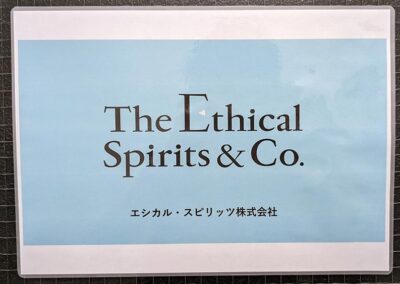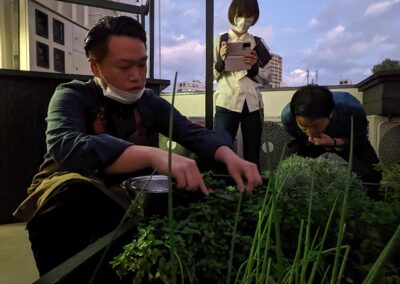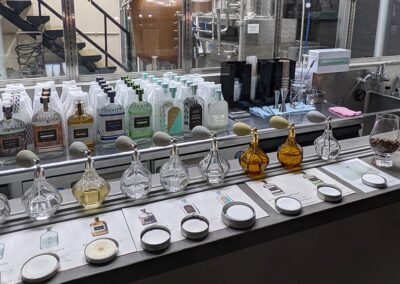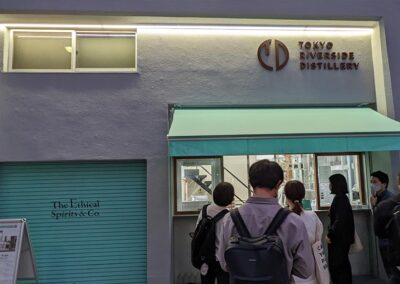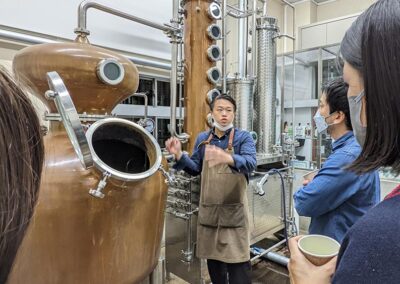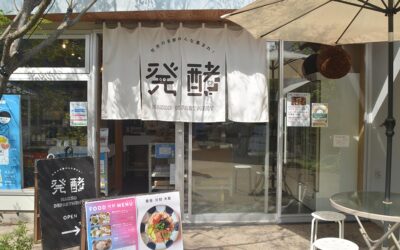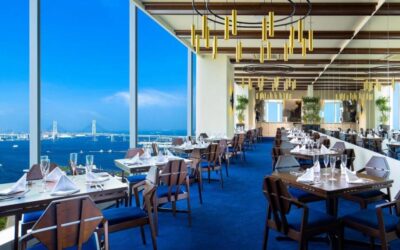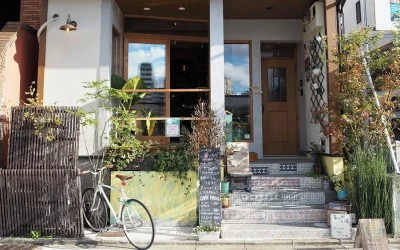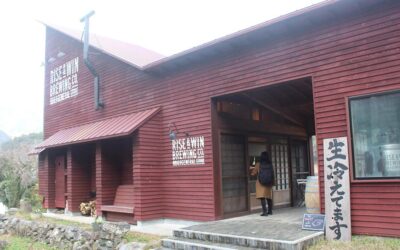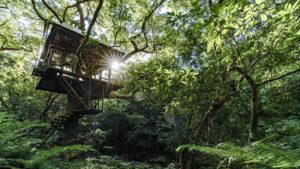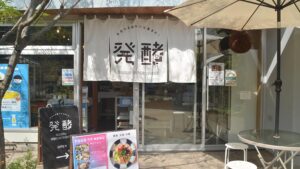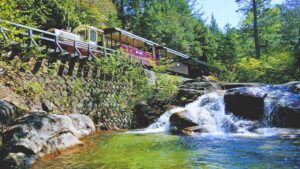The world’s first regenerative distillery, “Tokyo Riverside Distillery by The Ethical Spirits”
Introducing Tokyo’s third distillery, the “Tokyo Riverside Distillery by The Ethical Spirits,” the world’s first regenerative distillery that specializes in ethical production and consumption. The distillery partners with sake and beer breweries to produce distilled spirits using diverse, untapped materials.
At the distillery’s first floor, customers can purchase craft gin from Ethical Spirits, learn about botanicals, and enjoy the aroma of gins distilled so far. The second floor is home to Bar&Dining “Stage,” offering original cocktails using Ethical Spirits’ gin, and a food menu developed to complement each flavor.
The milestone product of this distillery is the Ethical Gin “LAST,” a quintessential ethical gin that embodies the principles of Ethical Spirits. The name “LAST” has two seemingly contradictory meanings, “final” and “continuing,” and it’s named after the story of giving “continuing” new life to the “final” sake lees left after pressing. The gin fully circulates its value by reusing sake lees, which were mostly discarded after refining.
The base spirits essential for gin distillation are created from sake lees destined for disposal, increasing production difficulty but successfully developing a unique recipe not possible with conventional gins. The flavor created by using several times the amount of botanicals found in typical gins results in a glamorous taste worthy of being called “drinkable perfume,” adding color to various everyday scenes.
The purchase of “LAST” gin creates a circular system where an equivalent amount of new rice is delivered from Ethical Spirits to the sake breweries. The new rice delivered to the breweries is produced by rice farmers who cooperate with the breweries under contract and cultivate abandoned farmland. By consuming “LAST” gin, one can help provide the sake breweries with new rice, which is the raw material for Japanese sake, as well as contribute to the resolution of abandoned farmland issues. The various aspects related to “LAST” are interrelated, and this cycle aims to achieve sustainable sake brewing and rice cultivation.

